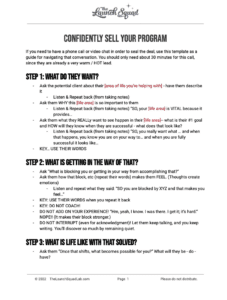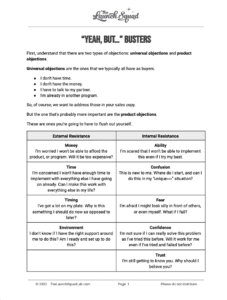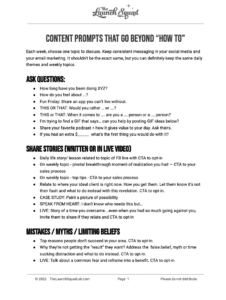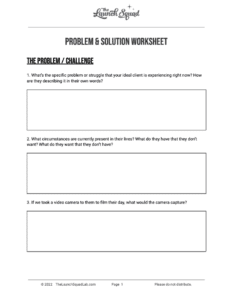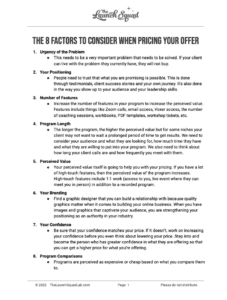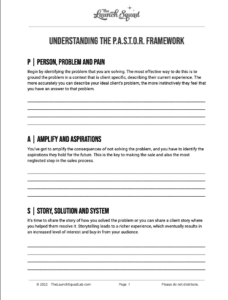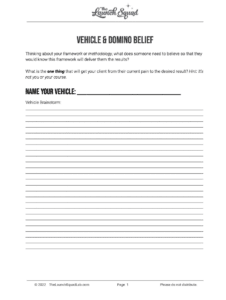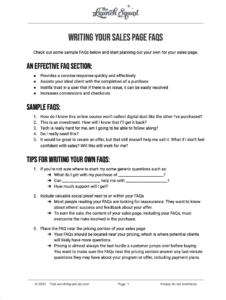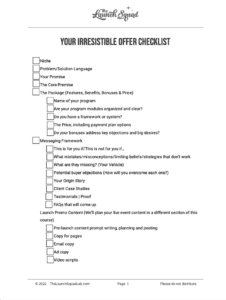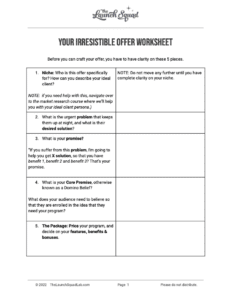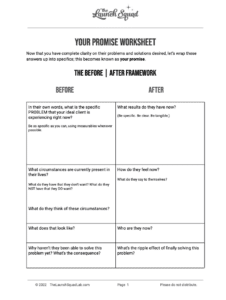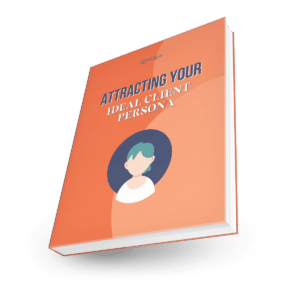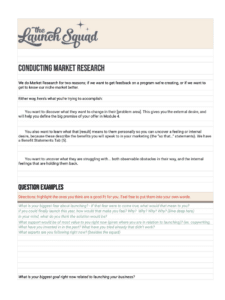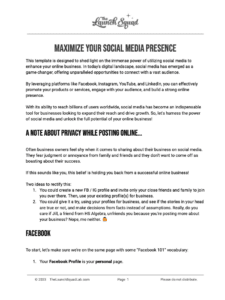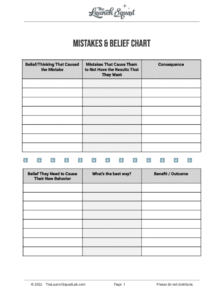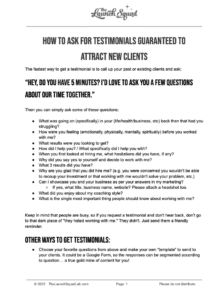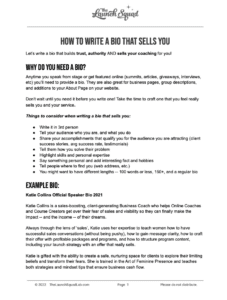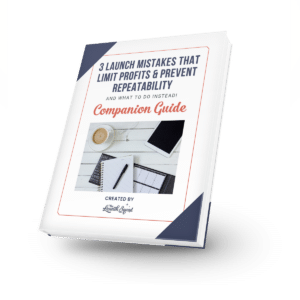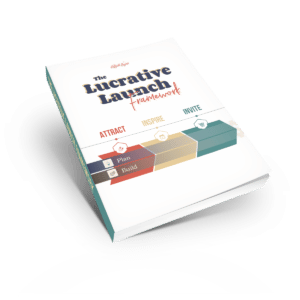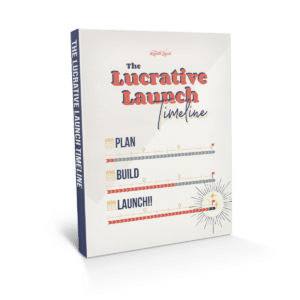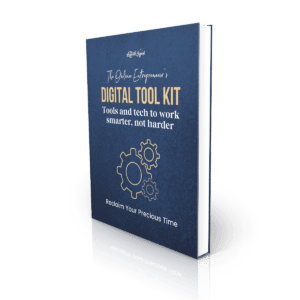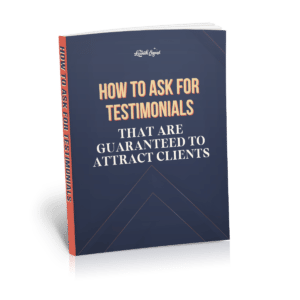Today’s guest is a professional speaker/trainer and the founder of GetSpeakingGigsNow.com and the author of Get Speaking Gigs Now. After booking and delivering over 500 speaking engagements in less than 5 years, Leisa answered the calling to share her speaker secrets with aspiring speakers.
As the Founder of the highly successful OC Speakers Network in 2013, she had met many speakers who had powerful messages to share but weren’t sure how to get speaking engagements.
Today she’s sharing her tips and tactics for booking, nailing, and getting paid for speaking gigs.
Learn more and connect with Leisa: https://getspeakinggigsnow.com
Ep 49. Get speaking gigs with Leisa Reid
Jeffrey: Welcome to the light and your launch podcast today. We're talking about how to grow your business through speaking. So stay tuned,
Jeffrey: Welcome back to the show. I'm Jeffrey and I'm back again with Katie Collins. And today we want to talk to you about getting speaking gigs and for this topic we've brought in a very special guest.
Katie, could you please introduce.
Katie: I would love to. She is a professional speaker and trainer and after booking and delivering over 500 speaking engagements in less than five. She answered the calling to share her speaker secrets with aspiring speakers, founder of the orange county speaker network with over 600 beds. Creator of the get speaking gigs now academy and author of the book.
Get speaking gigs. Now this gal is passionate about training speakers with varying levels of experience messages and niche markets. She believes a great foundation, solid network and proven strategies can help propel speakers to actualizing. So, if you are a business owner or entrepreneur who wants to learn how to monetize your business through consistent speaking gigs, but you may be feeling a little hesitant about putting yourself out there, or you may just have some of the pieces in place, but you feel stuck.
Lisa Reed is your gal. Welcome to the show, Lisa.
Leisa Reid: Thank you for having me. I love your intro. I should have you come out with me all the time. Katie
Katie: Awesome. We're glad you liked it.
Jeffrey: she can travel.
Katie: Um, so Lisa it's like right off the bat, it's like, how the heck did you get 500 gigs? So I'm assuming in there, we're going to hear your story, but that's the question I'm starting with.
Leisa Reid: Yes. Well, I will say I'll full transparency. I don't think it was like within five years, but it was in within less than 10 years. Let's just say that I usually average about 60 speaking gigs a year. I will say the very first year I became a speaker. I was. And I was hired by a personal development company and they said the best way they've been in business for, you know, 20 something years.
And they said the best way for us to get clients is to go out and speak, give a demonstration of like our workshop. And that's how we get clients. I said, okay, sounds good. I was already madly in love with the work that they had done. I had had massive results in my own personal life. And so I thought, why not?
This sounds like a perfect job. So I had a phone at a computer. I had a talk and all the gumption in the world, I call it ignorance on fire. Right. So I just stopped. I started calling anyone and everyone and looking under, you know, all the nooks and crannies and under every. For speaking engagements.
Luckily because of my topic, I was able to, what I call speak for. It was an industry agnostic topic like any buddy who is wanting a little bit better life, who wants to understand the thoughts that were going on in their mind. You know, that would be helpful. So I could speak to engineers, salespeople, stay at home moms, just, you know, employees, entrepreneurs, whatever real estate professionals.
Well that first year I booked over 80. Speaking of. And this was, you know, I started with zero email list, zero, uh, speaking gigs, zero clients. And then through that first year, of course, brought in hundreds of clients and we would fill, uh, I would fill usually 10 workshops a year, like a weekend workshop, uh, about 30 people in each workshop.
So that was my first year. And, and I learned a lot that year and I worked my butt off with our first year. And so. I it each year would get easier and easier. And then also that, that same year that I started, I started a group called the OSI speakers network for orange county because I live in orange county, California, and I started to network with other speakers because I thought I could probably give them something like help them and they could help me.
Right. Like we, you know, we'll help each other. I like to play with others and collaborate and connect and. That helped a lot. What I wasn't expecting was for other people in the network or people that I would meet, ask for help on how to get speaking gigs. And I'm like, no, that's not what I'm here for. I'm here to help, you know, get you're into personal development.
Like I'm not here to teach you about that right now. But I just couldn't like, they just kept asking and asking for help. And that's literally why I named my company get speaking gigs. Now it wasn't about how do I be a better speaker. It was, how do I get on the stage? And I would just continually every year, year after year do it, but in a way that now wasn't so like looking under every nook and cranny, but like, how do I do this in a way that's fun.
That's consistent. And that I still am, you know, attracting the clients. So that is an intro of how I got the whole wheel started.
Katie: Wow. Well, I love the word gumption. I mean, I think all entrepreneurs have to find that gumption, um, you know, our last week's episode was around avoidance and people avoid speaking on stage simply by saying, well, I don't know how to get the gigs. they just stare at that one obstacle and, and that's that right?
Um, so I, I love the use of that word because you know, when you're on a mission to, you know, hopefully your mission is more than selling, but you better be on a mission. To sell something and your business, but you know, when you're in a mission to spread your message and create that impact speaking gigs is one of the fastest and easiest ways to build your business.
It's definitely how I built my six figure business, organically hundred percent speaking gigs. Um, let's talk about like, where can people even go? We'll probably like go backwards. Cause I want to know like what's in a good talk and all that stuff, but just for the people that are like. How do I get gigs?
Um, the first place that comes to my mind is meetup groups. I don't even know if those still exist. Um, but tell me, like, what would be your fast and furious answer to where can I get gigs?
Leisa Reid: well, here's what I hear so many things I want to share based on what you just said. There's a million places that you, so here's the good news. Everybody. There are so many places that you could, that you could go to speak. It's not about where are they? Like, there's not enough. It's about how do I narrow down this huge list to really target who needs to hear your message.
Right. So, which is actually, I think. Like relieving, like, oh yes, thank gosh. I, you know, I don't have to go through cotillion leads. Right. And if you went on Google or meetup, you can look for engagements. It would actually take you a really long time because there are so many, and then you'd have to look through every single one and go like, oh, oh, they don't bring in speakers.
Oh, that meetup hasn't met for seven years. Oh. You know, whatever. Right. Or all the. So the first thing before you even start looking is getting super clear on who do you best help? Who, who, where are they hanging out? Whether it's virtual or in person, obviously lots has changed in the last couple of years where now virtually they can be anywhere.
And I'll give it a couple of examples. Like if entrepreneurs are your. Then you can easily think. Hmm. Okay. Well, they're probably at networking events. If women are your clients are women, entrepreneurs are clients. There's like a billion women entrepreneur groups. So you can start there if you're even not, might be overwhelming.
So then you go, okay, let me, let me start in my local area. If you live in a big metropolitan area, Like we're in, I'm in Southern California. So we were surrounded by like, there's four really big counties all near where I am. I'm in between San Diego and Los Angeles next to inland empire. So that means if I found one chapter of a group, they probably have a chapter in, this is like secret bonus tip, secret bonus tip happening right now that then they, they could probably speak at the LA chapter and the San Diego chapter in the inland empire chapter.
So then one lead has now turned into. Right. So I am a big fan of working smart, not hard. Okay. You're a very busy entrepreneur. You don't have time to be doing all this data research. You need to get straight to the, to the heart of where you're trying to go. So that would be that's one example of like how I would recommend someone start.
Another example might be if you're just getting. Kind of a, I would say easy place to start is service-based groups like rotary Kiwanis, the Elks club lands club. Uh, there's different groups like that who are very service-based, but guess what? They meet every single one. There's tons of chapters all over the country and they usually have a speaker every single week.
So it's an excellent place to get started. Um, there's usually some heavy hitters in there. There's usually like council members and city leaders and people who are very connected. They're very heart-centered. So for the certain type of person that might be a great place to start.
This is a couple of little tips there.
Katie: Right. I love that.
Jeffrey: yeah, my first question here is like, okay, that's great. If you're in a big city, what if, what if I'm, you know, a health professional that's living in Fargo, North Dakota? What do I do? Where do I
Leisa Reid: Yeah. Again, it depends on what strategy makes sense for your business. So if you are a health professional, who is. Your clients come into you physically and you don't do anything virtually then. Yeah. You're gonna, you're going to hit your local market, right? You're a chamber of commerce, possibly any local networking groups or any associations that are affiliated with your area, but let's not forget the amazing opportunity of virtual events too, or virtual virtual meetings now more than ever.
Everyone's connected for the most part. We're now all zoom educated, you know? So if you have a virtual based business, there's no boundaries anymore. There's no, I've spoken in multiple states in one day and it's very exciting because you're like, oh my gosh, this is awesome. I can just click on my computer and Walla.
There I am. And all of a sudden I've got clients all over the, not just the country, but the world it's, it's really exciting.
Jeffrey: Save a ton on travel costs. That's for
Leisa Reid: Oh yeah. Time, you know that the time where you're like, oh, I don't have time to work out. I don't have time to eat healthy. Well, guess what? We all just got a lot of time back in our schedule.
Katie: gifted time. That is for sure.
Jeffrey: amen. Amen. Yeah.
Katie: So, um, I want to know, you know, you said in the beginning, uh, and that business coach in me was like, oh, I hear this all the time. You said in the beginning, they're not looking to write a good talk. They're looking to get speaking gigs. And, and while there are people in the category of, I already worked on my talk, I'm ready to go.
I'm looking for speaking gigs. I'm not talking to those people, but there are people that think they have a good time. But they actually didn't buy any program to teach them that. And they have no idea how to sell quote unquote, whether you can make a soft sale or, uh, what or an invitation of some sort, um, they're there to teach and they don't understand the marketing strategy behind getting sales from it.
Um, so with that in mind, what makes a good talk? If somebody's sitting there going, oh, shoot. That might be. Um, what are some qualities that make a really good talk?
Leisa Reid: That's a great, that's a great question. I will even go further down in the focus of this, because there are so many styles of talks. Like there's Ted talks, there's graduation, commencement speeches. There's so there, so people think like all, you have to be this like great orator in order to speak ever.
And that's not the case. Okay. Just so everyone can just take a big sigh of relief. lane, the lane that I specifically work in our are our business professionals, entrepreneurs who love that actually love the idea of teaching. They have a lot to say they're like really want to transform people's lives, but they're also building our business, right?
So it's like, how do I bring what I call massive value to the audience and massive value in honoring your business? Because I think what you're saying, Katie. It's like sometimes people put so much emphasis on teach, teach, teach, and I call that fire in your audience or Thanksgiving dinner in your audience.
We don't want to do that. So they're passed out on the couch. You know,
Jeffrey: yeah.
Leisa Reid: we, we want them excited, want to give some appetizers, but then we also really want to value. You want to value your business because guess what, if you're not in business anymore, you aren't able to transform people's lives. You're stuck.
You've got to close the doors. So there is this beautiful balance of giving and receiving, and this exchange of energy that I think is super important. So that's one of the things I'll coach people on. Um, a lot of times, yeah, they'll do, they do come to me sometimes with the talk already. And so I always leave it open.
Um, when people are in my. Speakers training academy. They get a session with me called get your talk, ready to rock. And so we just, the two of us will sit there together and construct the talk together. And I say them, you can bring a talk to the session and we can, you know, maybe we'll keep some of it.
Maybe we'll maybe it'll stay the same. It never stays the same. But, or, or I can say we can create a new one. So then you have. So I leave it open and then that allows this creative process to happen because I do think a talk is like an organism. It's like, it's a thing that needs to be given life. It's unique to that person.
It's unique to their personality, to their expertise, to who their audience is and all that has to all go together. And I always start at the end first when we're constructing and talk. So right. I'm like Katie, I'm picking up what you're throwing. We've got to go. Okay. How does this make sense for your business?
If you're selling baskets and you're talking about scuba gear, how do those two connect that's those two dock connects, so we're going to make it work. So we start at the end first so that we know already the, is being served in a really beautiful way. And then we back it out from there, like let's get into the meat of what's really going to help the audience.
So then all of our other attention can be on the audience.
Katie: Love that.
Jeffrey: so huge, so huge. And if you were doing that program on underwater basket weaving, you could have bet baskets and scuba diving that it could, it could be.
Leisa Reid: yeah, you'd need to get under the water and you need to carry that basket, you know?
Jeffrey: So the question I I'm pretty sure our listeners are having right now is, does this, does this translate? And you, you said via zoom, but is it when somebody is saying speaking gigs and oftentimes that speaking from stage does the same thing translate to like a webinar or a sales pitch of something?
Leisa Reid: it can, again, this is where we're starting to get into the different aspects of speaking. There's there's like these micro. Differences and just like many people out there when the pandemic hit, I had to shift on most of my, like probably 90, 95% of my speaking was in person prior to the pandemic. So then I was like, whoa, okay.
Now, instead of handing out a piece of paper, I'm using the chat box and got to make sure those links are working and you got to make sure people are looking at the chat you got to, how do you, how do you make sure that they stay on video and they're not snoozing and doing. Multitasking. And they're actually paying attention.
That's on you as the speaker, you gotta like, make sure it's worth it for them to pay attention. Otherwise, why would they pay attention? They got other things to do, so you have to make it valuable for them. Um, and I, I can't remember what else, other questions you had, but that that's
Jeffrey: Yeah. Like just modeling this to a webinar, uh, you know?
Leisa Reid: Yeah, webinar is a S is a slightly, a little bit different. It just depends. If you're going to have like live interaction or no live interaction, like, is it a recorded thing and no, one's really going to be asking questions or talking. But you still, so there's a slight differences in your delivery and how you engage with the audience.
You can still be engaging, even if they're not talking back at you, but it does take a little bit of a different energy. A lot of times, people, especially newer speakers, they, and I hear this a lot. You guys probably hear this too. Well, let's say, oh, I get my energy from the. Okay on a webinar. You're not getting your energy from the audience and they're not saying anything, so you
Jeffrey: let's unpack this cause that's a big point. Right. Oftentimes we're speaking to ourselves in a sense, because, especially on, so if it's zoom and you have a webinar, uh, the audience or the participants, they don't see each other. Right. So if it's a zoom meeting, sometimes there's people have it in a grid and you can kind of see everybody.
If it's a webinar, they don't see each other. And like an either case you're sitting there talking to a camera it's feels so impersonal. That is. The exact opposite of, of like an audience. Right? How do you, how do you overcome
Leisa Reid: well, you, I practice, right. This is the, the biggest freest tip you could get, you need to practice, like it's kinda like thinking you could drive without ever taking a car out in the parking lot. You have got to practice and it's free and yet people resist it. And it's because of.
Largely as adults uncomfortable with it not being perfect the first time it's like, God forbid, you have to practice tying your shoe, you know? And as a little kid, if any of you have kids, if I, if a little kid tries to tie their shoe, they're not going to get it right. The first time you're like, oh, you're just going to keep, keep on and keep trying it.
And eventually it goes into, you know, Um, unconscious competence. That's the zone we're trying to get into. So I tell them you're in conscious incompetence right now. That's okay. You're going to get over. You're going to get to of. Incompetence conscious or all the others, all the authority,
Jeffrey: unconscious
Leisa Reid: know what I'm talking about?
You know what I'm talking about, but it doesn't, you can't flip the switch and it happens. It's a process. And so as you practice your talk, anytime I have a new talk, I practice out loud. So it's not like, oh, I've graduated and I don't need to practice any. I need to practice too. And I've given over 600 talks and I still practice because how, why?
Because it's the best way to get better at what you're talking about. It's the best way to get it into that unconscious competence, because you don't want to be worrying about what you're saying. You want to be there for the audience and delivering for them instead of going, oh, I was supposed to say this.
Oh, I messed up. Oh, what's next? I can't remember. I'm you're flustering over your words. No, you want to be. On ready to go. So that's my oh, step off the soapbox for a moment, but
Katie: No, but I couldn't agree more there. I just had a session with a client right before now, and we were talking about a webinar that she's going to create and she's going to be a multiple, have multiple uses for the content. But I, you know, she was like already six steps ahead, you know, do I invite people?
LinkedIn or, you know, whatever. And I'm like, I don't even want you to think about that. I just want you to write the webinar and I want you to do a practice session on zoom by yourself and record it. And, and because I know from my own, and I have no idea how many talks I've got. A lot. I've been doing this 10 years too.
And like I said, that was the, my beginnings. Um, sometimes you say something the minute it comes out of your mouth, it doesn't feel good. And your body, right. Like, oh, I don't like the way I said that or I messed up their name or whatever that is. And so I just love the practice because I get to just make a note, you know, oh, come back and fix this.
That story didn't sound right. Or as I was sharing, like when I typed it sounded brilliant, but when I spoke it out loud, it didn't connect. Right. Sometimes I forget to bring, I forget to wrap up my story at the end and say why it was important. I expect that people are gonna know that, but you know, people's attention span, yada yada.
So you gotta make it really clear why that was important. So that's one thing that I would see when I practiced. I would go, oh, that didn't feel good in my body. Now. I don't want to feel that way when I'm delivering a webinar. I only want to feel that way when I'm rehearsing. And I say the same thing about sales calls, you know, I coach people on sales and I always say, don't make a sales call with a potential client, your dress rehearsal.
Leisa Reid: Yeah.
Katie: want to have it solid? You want to know your stories, know how to overcome those objections because you've practiced it over and over and over again. I remember, um, I, I resisted it big time. I don't know why, but I remember living with a guy back when I was teaching still and he was going through.
And he had to make a presentation. It was a sales job, and I would hear him in his room practicing that presentation over and over and the tonality and he sounded so good. And I remember thinking in that moment, you've never tried that hard for something before, and he nailed it. He got the job and, you know, and I just remember being like, yeah, there's that gumption of really. Just really putting that effort in, you know, and being like I'm going to nail this instead of well, let's see how it goes.
Leisa Reid: absolutely. And that, honestly, that gumption that effort, and again, didn't cost him anything. It cost him his time and some energy, but it didn't cost him money. That is that extra work that makes a difference in. Right. And I always say don't well, I say definitely practice, but don't have your very first speaking engagement.
Be the speaking engagement of all speaking engagements in front of your ideal clients. Know, that's why I suggested earlier, try out some other groups where it's like, you know what? I don't even know if I'm going to get a client from this, but I'm going to go and give it in front of a live audience.
They've given me the stage. I'm going to honor them. I'm going to love on them and give, you know, give all I got a swing for the fences. You know, no that it's kind of a practice. I'm just, it's going to change. It's going to evolve. Let yourself, let it evolve. Let it, I always like marinate on it, but you have to, at one point, get out there, drive the stick shift and, and stall a few times and be okay with it.
Pick yourself up and get back on.
Katie: Yup.
Jeffrey: right. If you could deliver it to your family, like, and have them actually pay attention to it or listen to it without feeling that thing, then you're, I think you're, you're on a, like, that's a good beginning, right?
Leisa Reid: Yeah, it depends on your family.
Katie: Totally. I would be, I would be more nervous in front of my family or my partner that I would be in front of a room of strangers, you know?
Leisa Reid: It depends on, yeah, like this is it's funny, Katie, you were talking earlier about resistance and kind of the reasons why, and we have avoiding things, I call it the speakers kryptonite. And so understanding your own version of whatever that's kryptonite is, that's the thing that could kill Superman. Right?
So the most, the strongest person in the world, the most confident person, intelligent person can still suffer from some kryptonite and, and can stop them. And so sometimes people get more nervous in front of people that. Sometimes it's the opposite. They get more nervous in front of you, but they don't know sometimes it's bigger groups or some of the smaller groups.
I mean, there's all different kinds of reasons why, uh, we get tripped up in.
Katie: Yup. so you, part of your promotion is like get paid for speaking gigs. And I've got an opinion on how I like to get paid for my speaking gigs, but you may have a different approach because you also have. Different types of people than my industry. So how, how do people get paid for speaking gigs?
Leisa Reid: Well, I think actually you and I might be on the same side of this. Uh, so, so I'm excited to hear what you think. I actually, uh, don't phrase it that way in terms of like getting paid speaking gigs, because what I call it as monetize your speaking, which really incorporates the whole enchilada, in my opinion, as you can tell, I like food.
So what happens is that a lot of times. We're working on an old model. That means like a speaker fee is how you are paid as a speaker. And that's the only way that you're going to make money as a speaker. I think that that is one way of making money as a speaker, but certainly not the only way. And certainly it is, um, somewhat of a limited way.
If you have, I do this thing called the speakers attraction formula, where we figure out like, okay, What do you have to sell? How many speaking gigs do you want to sell? How many clients do you think you can get from that? And then we start adding it up, all those numbers and see like, where are we at? And what do we need to tweak?
Because if you could get, if you have a thousand dollar or more program, and then you think, oh, if I got maybe even one to three clients from that, you're well, on your way to making more. Uh, you know, having a healthy business when you start to really add up your hours. And so, like, for example, I just spoke at an event a couple months ago.
And it was a no sales zone, meaning like you are not allowed to sell at this event. You can only give something for free, which is, you know, that commonly happens. Um, but I knew it was the right audience. Again, here. Some bonus tips here on how do you decide if you want to take that kind of opportunity? I knew it was the right audience.
I said, absolutely. I will be there and, uh, generated like $15,000 in sales. Okay. From not being able to sell. So to me, that's going to be more than a speaker fee. In how I look at it, because all of the things, again, your talk is set up and your programs are set up so that all the thread goes all the way through.
You provide lots of value and then you attract the people. In my opinion, you attract the people who really want to work with you. And that's, that's my sweet spot. I love that. So what, what was your opinion about it,
Katie: That's the exact same, the
Leisa Reid: Ah,
Katie: learned that early on because, um, my very first company that I trained under and got my coaching certification, they were really pushing the, you know, you can get paid for speaking. And at the time I was a school teacher. So the concept of anyone giving me a thousand dollars. Uh, w blew me away. Right. So I was just like, oh my God, I would love to get paid speaking gigs where they paid me, you know, thousand dollars. Well, now you see this industry. I mean, there are people that get, you know, 5, 10, 15 up to 50,000, you know, for a 45 minute talk. Um, anyway, so I was trying to go down that path.
And then when I found different mentors and they were like, no, no, no, don't cap it at a thousand dollars. You want to make some sort of offer, get them into a funnel of some sort, which is music to Jeffrey's ears. Um, and, and, and be able to sell on the backend of that. So I always think that's the better, the better option.
Jeffrey: Um, one little thing I want to, I want to interject here is because you, you said something that didn't quite make sense and I want to make sure everybody caught on to that.
You said you made money from a speaking gig. You weren't able to sell it. Right. So break that apart a little bit because I'm sure people were out there listening. Like, wait a minute. I wouldn't, she wasn't able to sell anything. She. Yeah,
Leisa Reid: So, again, this is where, when you're building back to the earlier conversation about building your talk, as long as you are giving value, that's your expertise, right? And you've already got an offer at the end. That might be a free offer. It might be a discovery session with you, some kind of consultation with you.
Maybe it's a free. Checklist video series, whatever course, whatever it is that you that's in your wheelhouse. And then people will sign up for that. And that in turn then can turn into a client or a sale. So for my model, I like to work with, and I work really intimately with my clients. So I'll have people, then this actually happened at the event, someone walked up to me and she said, I am your ideal.
I want to have a conversation with you. That is what you want. That's
Katie: music to your
Leisa Reid: Yes. Cause I don't want to work with people who are not my ideal client. I want to work with people who are my ideal client. That means they maybe enjoy my sense of humor or I talk pretty fast. If that, if that doesn't work for somebody, we're probably not going to probably not going to be a great fit.
Katie: but it's true. That's what I love about speaking is that they really get to see your personality. And I just love that because people just fall in love with you and they want to work with you and has nothing to do. Anything, but, but that, right, like I'm your ideal client and I liked being in the room with you and you know, so I love that part of speaking.
Leisa Reid: you're approachable and you're a real person. They show like, oh, she actually, that person cares about me. They get what I'm struggling with, you know, that that's, that, you know, building the authority, building the empathy and that's all built in. Right. That's all built into your top. And it makes it a lot easier.
It just really makes it a lot easier. I was going to say, uh, about when we were talking about speaker fee versus, you know, selling products or services. I sometimes use the metaphor of like a one night stand versus like a long-term relationship. Like I want to have a long-term relationship with people. I want to help them transform.
I know that they're going to learn something from my talk and a half hour or an hour, but that's not going to massively transform their lives. What's going to massively transform their life is when we get to work closely and start really digging into answering the questions that they have and the struggles that they've got.
I had a gentleman today who has been doing all these YouTube videos. We just started working together and he didn't know how to create a thumbnail. He's like, oh, it takes me like three, four days. And I'm like, okay, let's, let's, let's fix this right now. Like, we can like make this, like I, let me make your life easier, like in five minutes.
Right. And that's. You know, we're having these questions, but we don't realize that we have these questions that are holding us up in our business. So it's not just all about speaking sometimes. It's about stuff like that
Katie: Yeah. I mean, cause there's the, the business of speaking and then these it's the being a
Leisa Reid: and there's business.
Katie: right?
Leisa Reid: Yes. Yes.
Katie: Um, one thing I had learned, and I don't know if this is old fashioned at this point, cause I learned it several years ago, but, um, to, you know, you want to be a good guest. Um, for the host. So it's important to acknowledge and thank the host, give them some kudos for the group that's gathered the time they've put in that kind of thing, especially for meetup groups, um, bring your bio on a piece of paper in case they forgot to print it.
Um, and then one thing that I really liked, and I'm wondering what you think about this was, um, create, especially, again, this was a meetup group things. So several years ago, um, make making a list of friends and colleagues who. Speakers for that group so that you're kind of giving them a gift like here, I recommend these people are top notch.
Do you think that's a good strategy now? Or is it presumptuous or
Leisa Reid: um, I've never done it to that extent, but I am definitely a resource for the places that offer that allow me to come and speak on their stage. So always being gracious. And one of my modules is systems to get asked back again. And I call it the unsexy side of speaking, right. Because it's like, oh, I just want to be on stage.
I just want to go do my thing, but there is the business side of speaking and part of it is being reliable. Being on time, having your stuff in bringing that bio, not just bringing the bioprinted out. Cause no, they will not have a printed out. They usually forget or have it all crumpled up in their bag and you know, that's not good either, but making it in a big font, making it spaced out so they could read it.
Uh, you do not want someone introducing you while they're reading it from their phone. Okay. That just doesn't that's not going to look good for anybody. So yeah, always having that buyer. I even put it in like a little plastic sleeve so that it doesn't get all crinkly. Uh, but, but I like the idea about offering the speaker, um, suggestions.
One of the things that I've done. Remember I was sharing at the beginning, how I worked so hard that first time. Getting those gigs. Right? Well then each year after that, I usually average about 60 gigs a year, but I don't work as hard as I did that first year. And that is the number one secret to staying consistently booked in my opinion, is networking with other speakers.
So if you're out there as a speaker and you've got all, you have all the contact information of the host, right? Cause you had to, you, you, you communicated with them. You'd probably have their cell phone number. That's what I would call. Gold gold baby gold, right? That is your social currency. And that is something that you can offer to other speakers.
And then guess what? They've got gold too. So then they can offer that to you as well. You always want to keep in mind that you're matchmaking. Basically. They don't, not every speaker is good for every single speaking engagement, but I have something that I call the speaker soulmate system where you start to really develop like two or three.
Like your close best friends kind of thing of who would you want to refer on a regular basis? Who, who do you trust? Who do you like, who do you, can you rely on who, you know, maybe you've taken some of their programs or you've had some sessions with them or you seen them speak, you can really, really confidently refer them.
And so that's what I teach because then all of a sudden, I mean, out of the several hundred that I've had a hundred of them have been given to me by one. Just one referral. So when you really develop that deeper relationship, it makes it more fun. It makes it easier. And that's why I, uh, for my academy, it's in a group setting because actually that happened this morning.
I, there were speaker referrals flying back and forth this in my group session this morning because there was like, I want, yeah, I'll do it. I want to be on that. Please send my said my information. And, uh, that's where the magic happens all behind closed.
Katie: Love it love it, all these little nuances that just make, um, you know, you leverage your time so much more. Right. And, um, it's, I think it's uncomfortable for people to ask for referrals or ask for support. Um, in fact, that was one of the things I was just saying to my client right before now. Um, you know, do exchange.
Of free gifts and interviewing each other and you know, like, yeah, make BFS business besties
Leisa Reid: Does this
Katie: and get your business besties to, you know, write you a testimonial if you don't have many or right. Make intros and that kind of thing. And I think that we have this, you know, like independence, like, oh, I, I should be able to do it myself, or I'm going to look like a rookie if I do this.
And it's like, no, Everyone started somewhere. Right. You remember that first year and how bad you hustled. So if you, if you meet someone or you hear someone speak and you're like, you are amazing, like, you know, it, you opened the door. Right. And, you know, I might be able to ask, ask for support of some way.
So I love that. Just leveraging your time and your opportunities. Um, all right. Let's see. What did I want to ask you here?
Jeffrey: I I've got a question. I've got a question here. Um, Because I don't consider myself a speaker. I have spoken, but I'm, I don't know. I'm I am such a noob when it comes to speaking. And I want to know, I have a two-part question really. Um, the first is like, what are, what are the mistakes, new speakers, or what are the, what are the mistakes people make when they, when they're starting to establish themselves as a speaker?
And like the second part is. Is there like a, a kit, a goodie bag, uh, a standard operating procedure. Like what is, what are the things that like, okay, if you're going to start getting speaking gigs, here are the assets you, you need to start creating and holding and being have available or whatever. Like w what are the mistakes and what do we got to do to be prepared?
Leisa Reid: well, the first mistake I think, is not having your talk done or not having confidence in your talk, which is why I start with all my stuff starts with. Ready to rock. And I say, let's start there because when I do that session and how I teach it, you're already thinking of who is this topic? So, I mean, you're, you're basing it on your expertise.
Why I say that is because if you want to be a speaker and then you, you know, maybe you change your Facebook profile, your LinkedIn profile, like, oh, I'm going to put that in my title. Uh, you know, very exciting. I'll change my status. The very first thing people are going to ask you is, oh, well, what do you speak on?
And the biggest way to. Take the wind out of your sales is say, you don't know, or you're still working on it or, oh, I speak on anything, which I cannot stand it when people say that, because I say, really, you speak on anything. Like you could like dishwasher repair, you could come in and
Katie: underwater basket weaving.
Leisa Reid: I'm like, no, no, no, no, no, no. You don't speak on anything. So having that talk done, even if you've never given it yet gives you so much. Like, cause then you could say, it's I something so powerful about putting your stake in the ground and saying, this is what I'm good at. This is where I can really make a difference and really help people and people should know this.
Right. And that is exciting. Like I'm getting excited about just thinking about it, right. It's like, oh yeah, like that's the juice, that's the exciting part. So that's like, step number one. Get that talk done. Because it doesn't take that long to do it, which is another one of those kryptonite things. Oh, I'm still working on my talk.
I'm like, really? Cause it doesn't take that long to do it. So something's wrong here. You're either not, you know, going in circles or like that's where I can really be helpful. And then the second thing is really getting honed in on where your people are. Like where are those groups? Because that's when you start.
Creating your ideal speaking gig pipeline is what I call it. You have to, you can visualize, you can have intentions, you can do all that stuff and that's important, but you have to act as well. There has to be some strategy involved. And by literally, even if it's just a piece of paper, I mean, certainly we can get more into the technical side of it later, but.
If anything, a piece of paper and a pen, you start writing down the places that you would want to speak or that you think would have you as a speaker, you are telling the universe, God, whomever is listening. You were putting that energy out there that you're ready. And I always say, be ready to be ready.
Like you got to get started. Cause otherwise that phone is not going to ring, but all of a sudden what'll happen magically. This is where the magic happens. I'll tell a client, I'm like, get your list going. Even if it's just 10 places, I don't know. The next couple days, they'll get a call. They'll get a Facebook message.
They'll get something, say asking for them to speak somewhere. And they're like, I didn't even try that. I didn't even tell him I was a speaker. I'm like, exactly. So you have to start laying those tracks down. Otherwise it will not happen.
Katie: Yup. Okay. So. So I am going to, um, say what I've heard from a lot of people. Um, oh, but I'm not ready yet because I heard that I need to have a speaker one sheet and then you have to have a speaker reel and I don't know how to create a speaker reel, cause I've never spoken on stage and I don't have any video.
Oh my God. And so then they just stop right there. Avoidance.
Leisa Reid: yep. That speaker's kryptonite house.
Katie: Yeah.
Leisa Reid: Um, so here's what I say. I have a section on the speaker sheet speaker when she speaker page, whatever you want to call it. Um, I do think it's a good thing to have again, it's it goes back to the confidence. Is you putting your stake in the ground saying like, yeah, I'm a speaker.
I'm legit. Here's my thing. Now that being said my first hundred, 200 gigs. I did not have a speaker sheet. I don't even know what it was. Remember. I was ignorance on fire. You have just got to get yourself out there. Right. They don't know the rules. They don't know you're supposed to have a speaker sheet, so go for it.
Don't let that stop you. And also it's one piece that, I mean, again, it's, it's so funny. The speaker sheet, it's one piece of paper. But or two pieces of paper or whatever, but you need your bio, you need your testimonials, you need your talk, you need like your perfect audiences. So that's all stuff we work on your branding.
Like if you don't have any of that, it's going to be really, really hard to put it together. And I always told my clients, I'm like, Rome was not built in a day. We're going to build a house. Okay. We're just going to build a house and we get that house done. We're building another house. And then we get the house done.
You know, we're going to bring the village in. We're going to get this all taken care of, but it's not going to happen today. It's going to happen, but not all of them. The speaker reel, same thing. You cannot. I had one person tell me that one time. She said, well, I want to be a speaker, but I need my speaker reel first.
I'm like, how in the heck? What are you talking about? You can't know that. No, you don't. I mean, you could make one up. I can tell when they're fake. That's okay. I guess. Really really think you need it, but I think it's more important to get out there, get some experience and then maybe get some footage of yourself and real life scenarios, get some real testimonials or, you know, when you have a like, decent like, oh, this is going to be a really juicy, hot, amazing, cool speaking engagement, then hire that videographer to come out and do that one.
Right. So there's all different ways that you can do it, but stopping yourself because you don't have. That's just, that's just your fear, trying to protect you from getting hurt. Speaking is a vulnerable, I get it. It is not for the thin skin sensitive, you know, like it takes, it takes some gumption. We're going back to
Katie: Our favorite word.
Leisa Reid: bravery. It takes, it, takes that, get up and go and like, okay, that didn't work out. Let me keep, let me go back at it. You know, you have to have that.
Drive. Otherwise you will fail.
Jeffrey: and it's like the human number one human fear. Right? Isn't that the thing like
Leisa Reid: I say that. I don't know if that's true, but yeah, they say that night, I don't know if it's true or not, but usually people who are definitely afraid of public speaking, don't call me because you know, that's not on their bucket list. Uh, but, but I will say I've worked with people who have. It doesn't mean you never nervous or that you don't have any fears?
Typically the fear of public speaking often, like most of our fears comes from childhood. There's many, many scenarios that can. Uh, create a belief that you never want to do that again. Um, you know, getting humiliated in front of your classmates because you had to read out loud, maybe you weren't that great of a reader, uh, getting called to the board.
You don't know the answer to the question or the problem. Maybe you have your voice or your tone is your speeches a little, um, not mainstream sounding. So kids can be kind of brutal. So that's just at school, right? And then at home you might be. You know, your, your opinion doesn't matter. You, you need to listen to, you know, all the things that happen sometimes when we're kids and then a person could just say, yeah, I'm never doing that again.
Like it's not a conscious decision. They're just shut that part down. And then they're like, yeah, I'm shy. I'm not a speaker. I don't that's humiliating. I don't want that. And then they carry that until they're 40 and they're like, oh, like, why am I so freaked out about this? Like, there's no threat anymore, but it takes. Deciding and investigation to, to overcome that.
Jeffrey: I can tell you right now, both of my kids have kind of gone through that transformation because when they were little bitty kids, like the, the thing they loved most was when we, whenever anybody a guest came over, they would bust out frozen. They would put on a soundtrack, they would perform it. They would do all of these things.
If you asked them to do that, now they would say, hell no. And go to that.
Leisa Reid: oh, interesting. Yeah. Yeah. You never know. It's everyone's different. Different people get affected. I had a training one time I did for a corporate event and I won't go into all the details, but we had a, you know, intimate session with everybody and, and one of the gals shared. She had an issue, you know, got really, really nervous when she had to present.
And I said, um, just to ask a couple of questions and turns out, you know, she had decided when she was younger, she, someone commented on her accent and she stopped talking for two years.
Jeffrey: Wow.
Leisa Reid: so, again, it wasn't even. When she said this, explain the story. It wasn't like an attacking thing. It was just someone commented on it.
But for that little kid, that was it. That's all she needed. Like I'm done. I'm not, not talking anywhere. And so then of course she was able to work through it luckily, but, you know, we never knew what's going on with.
Katie: Yeah. Um, so I'm curious. I know we got to wrap this up soon. If people are looking to get booked, um, do you have any kind of off the top of your head scripts that they might be able to use?
Leisa Reid: Well, instead I do have scripts. That's one of the sessions that I give in my academy. I literally share the exact things that I used to book hundreds of gigs. But what I would say that will probably be more helpful for listeners here is it's more of an attitude and you probably get this. Both of you get this when people want to be on your show.
Uh it's you want to make it easy for the host to say. You don't want to make it all about you. You want to think we're collaborating, we're partnering. How can I serve your audience with what I have to share, be helpful for you? And I think when you come from that place, it's going to be a lot easier for someone to say yes, versus if you are just wanting the speaking engagement, no matter what, and it's all about you, you know what I mean?
It's such an, uh, like we're on the same side of the table type of an attitude is how I typically approach
Katie: Yeah, I love that. It
Jeffrey: is so huge.
Katie: saying like what H w how it will impact their audience. Like, we just got a pitch the other day, and the person actually wrote back like five days later, like, who's the right person to talk to. So it made me actually go, oh, well, this person really wants, let me go back and read that first email.
And the first email was introducing someone. That's not her. Like, she's like the booking agent. Um, the CEO of XYZ company is now. Providing podcast interviews upon looking at your podcast. This guy is a perfect fit. Let us know how to proceed and I'm looking at it. Like, I don't know. I don't know the company.
And if you're going to make me like, go down the rabbit hole to see if he's a good fit, then you're just kind of wasting my time. So he, right. And so that's exactly what they didn't do, right. Was to say your audience would greatly benefit. Right. And then you just know it's a cut and paste thing. So it's like, I'm a big fan of scripts.
I think that they they're a. You know, I hate blank screens. So I think scripts help people get started, but you have to go in and add a sentence or two, like, Hey Katie Jeffrey, and Aleia, I listened to your podcast, lighten your launch. I love how you guys talk about blah, blah, blah, blah, blah. Right. Instead of like, Hey, I did a podcast search on apple, uh, you know,
Leisa Reid: Can I be on your
Katie: And I came across your title and I'm now going to send this cut and paste message to 500 podcasts.
And it was just like that with online dating. Right. Wow. You're beautiful. Your profile really piqued my interest a little bit about me, dah, dah, dah, you know, and it's like, oh, how many times did you cut and paste that?
Leisa Reid: Yeah. It's like enough about me. Let me tell you about me, you know?
Katie: right. Check out my profile. Let me know. Um, so yeah, so I love that. It's really, and, and I, um, you know, learned this from a few mentors of mine, but it's the whole, what's in it for me factor. And in this case, it's, what's in it for my audience. And if you can let me know how you're going to connect to my audience and how they'll feel after they experience your talk.
You're like a step ahead. The majority of people that are, that are looking to get in there.
Leisa Reid: A hundred percent. Yeah. And I, I always tell my clients, I go make it easy for them to say, yes, don't make it hard. Don't give them a bunch of work. Like how can we make this work? And honestly, sometimes I'll have clients who their target market is corporate. Right? And I'm like, guess what is full of people?
Corporate is still people. It's not a thing. You're not going to engage with a thing. You're always going to be engaging with the. Well, so far, right. As so far as we know. So, so far as it's still, we're still dealing with humans. So you have
Jeffrey: Try calling Google.
Leisa Reid: you still need to be nice to people and that goes a long.
Katie: Yeah, it sure does. Like really showing respect for, um, you know, if it's a conference like the conference organizer and the speaker coordinator, right. And same thing for networking groups. I used to be a part of a big network that was all over the U S and the speaker coordinator that was volunteer role. And so
Leisa Reid: they have their own business.
Katie: them the things that they asked for the first time, instead of dear so-and-so here's one piece. Send up. I forgot here's my bio send. Oh, here are my photos. Right? Like, oh dear God. So, and I've been on both sides of that. And it was funny. I had a gal, um, say, you know, I'm looking for a sales expert speaker in this group that I'm in.
And here's my email email, me and I followed her directions. Exactly. She's like email me, put this in the subject line, send me dah, dah, dah. And so I wrote, I introduced myself. I didn't throw all my stuff at her. I introduced, you know, I just followed the directions she wrote. Oh, great. Sounds like a good fit.
Send me, you know, um, if you could write. Uh, title or topic or something. And I'm like, oh, I got this. Like, I've been on a Google doc for years. So I've got the title, the bullet points your audience will walk away with. Right. Cut and paste sent it. And she was like, you are like the best ever, because that just took, like, I literally responded within five minutes.
She had everything she needed and you know, it's like, I know I'll get invited back to be a guest
Leisa Reid: absolutely. And that's when we were talking earlier about like, well, what do they need? And people worrying about a speaker sheet and a speaker rail. You need that stuff. What you just said more than any of that. Like, I have a speaker sheet. I very rarely use it anymore, but it, you know, it was nice to have.
It's good to have, like, just in case someone's poking around, they can look at it. No problem. But honestly, the thing that I copy and paste the most, you got your bio, your headshot, your and your title, description, learning points, which is why I cover all that in the, get your talk ready rock. Because it's like, you have to have those, you have to have a title, a description and learning.
Otherwise, they don't know if you're a fit. How, how are they going to know? Don't make her hard. Oh, I speak on leadership. Well, leadership of who or why? What? Like, you gotta make
Katie: right. Yep. Yep. Awesome.
Jeffrey: I was so good. So good. Um, what, is there any final thoughts to, to wrap this up? Uh, I want to be sensitive to your time, like any final thoughts to call this episode complete
Leisa Reid: oh, um, just if you were. Waiting for a sign. This is it.
Jeffrey: this is it
Leisa Reid: If you were like, oh my gosh, I've been meeting to speak. I need to get out there. Then I'm glad you're listening to this episode and we'll give you some resources to, to get more into.
Jeffrey: How can people contact you if they want to learn more about your book, your speakers network, you're coaching or mentoring
Leisa Reid: Yeah, they can go to get speaking gigs now.com. That's a gigs with the S because of course you want more than one, right? You want to get speaking gigs now.com. There's lots of resources on there for you. You can grab my book, which is also called get speaking gigs. Now you can have a speakers assessment with me, if you're really like, yep.
I was ready yesterday, then. If you just need some more tips, there's an opportunity to get five tips to get more speaking gigs. So there's a whole bunch of yummy goodies on there for you all about speaking.
Jeffrey: uh, that is so good. We're going to definitely link all of that up in the show notes. And Lisa really thank you so much for, uh, giving so much of your time for this podcast. This has been really beneficial. I think this is going to help a lot.
Katie: Super helpful. Thank you so much.
Leisa Reid: thank you.
Jeffrey: awesome then. Thank you so much for joining us. If you enjoyed this episode, please leave a five star review and hit that subscribe button. Tell us what you think. And you can check out all the show notes at the launch squad, lab.com forward slash episode 49. We'll see you next time.
Be the first to know
Enter your name and email and we'll let you know when new episodes release.
About the Show
The Lighten Your Launch Podcast is for Coaches and Course Creators who want a lighter online launch experience. Maybe you’ve done a few launches already, and feel exhausted just thinking about it! Or, it’s been one of your goals, but you don’t know where to start.
Tune in to learn from our team of experts, The Launch Squad, who aren’t afraid to dig into all aspects of launching: sales, strategy, technology, mindset, funnels, and even a bit of woo to get you through the toughest times. Let’s put a stop to perfectionism and procrastination, and finally take your launch from intimidating to money-making!

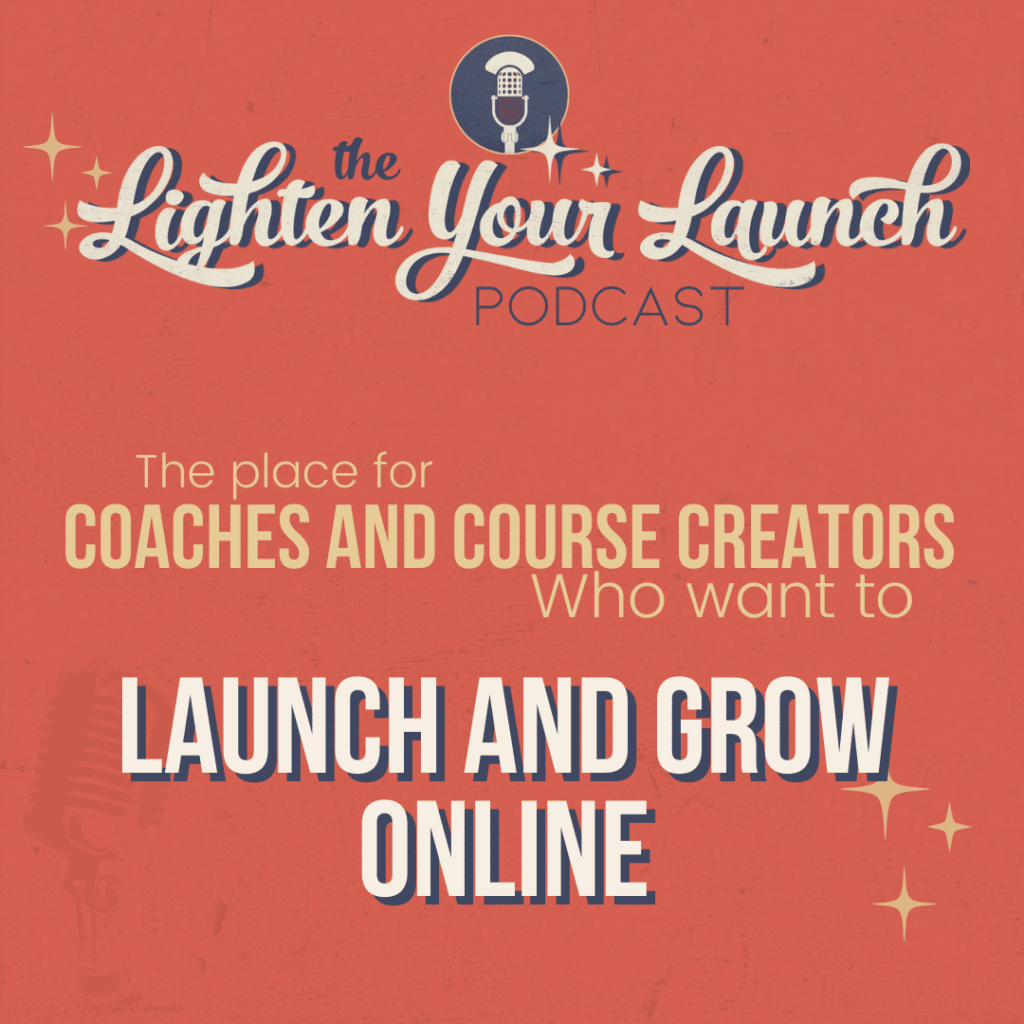
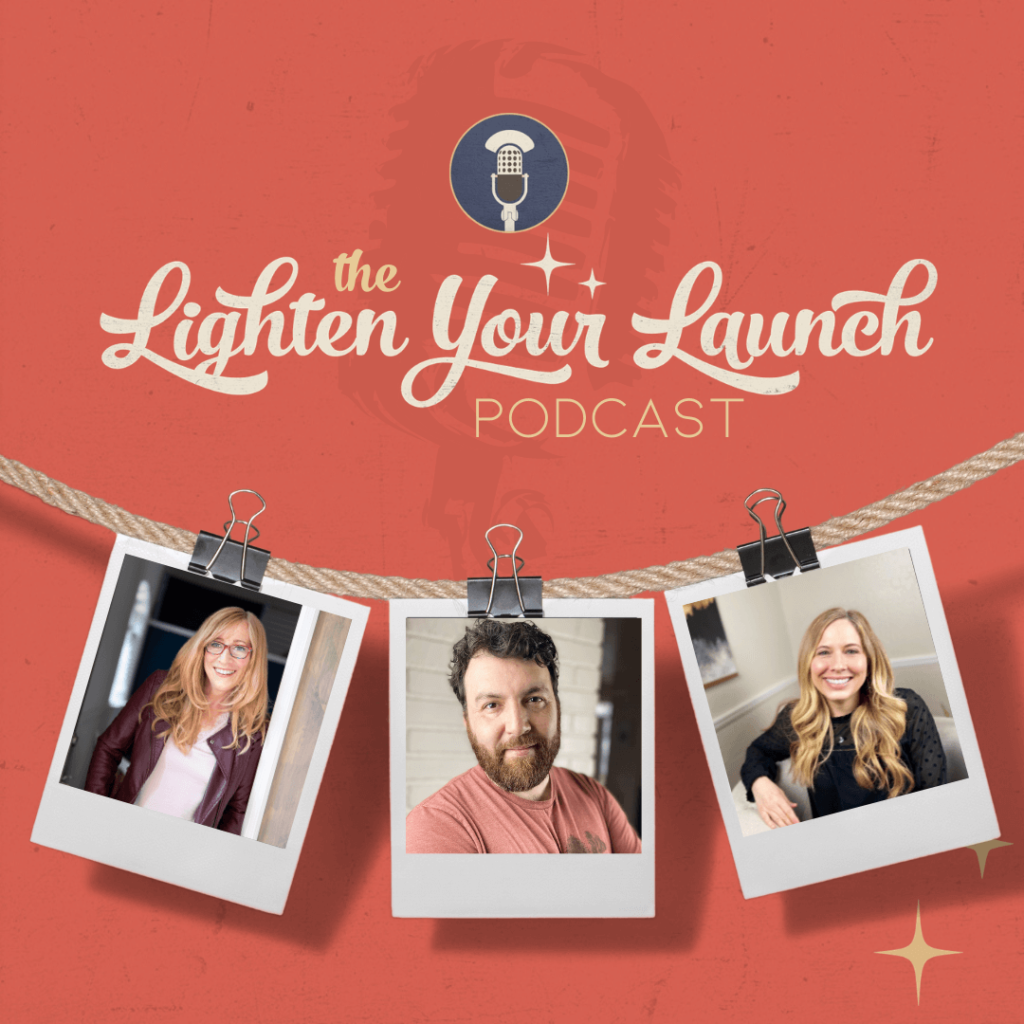


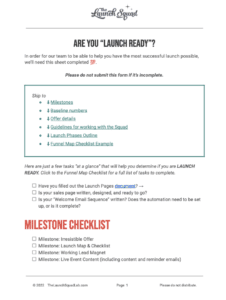
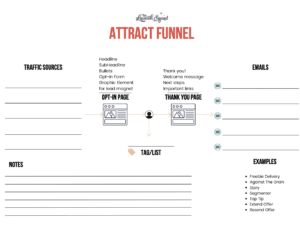
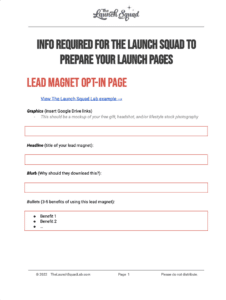
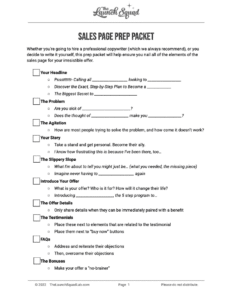
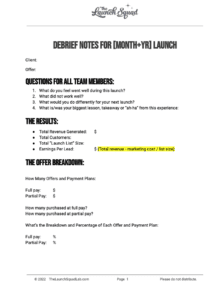
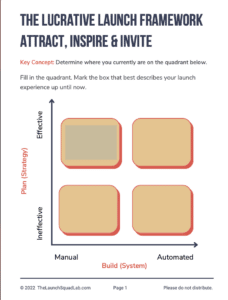
![Marketing Launch Calendar [TEMPLATE]](https://thelaunchsquadlab.com/wp-content/uploads/2023/05/Marketing-Launch-Calendar-TEMPLATE-300x260.png)
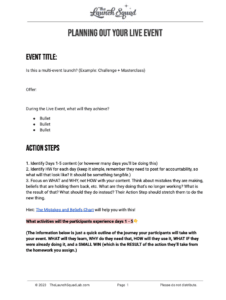
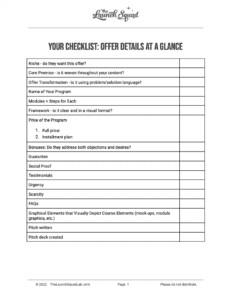
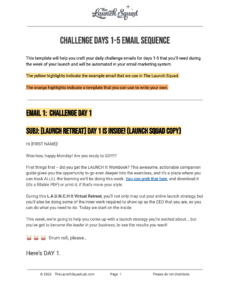
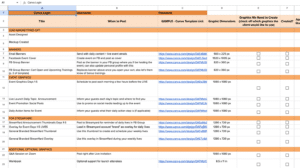
![[Updated] Email Templates for Launch](https://thelaunchsquadlab.com/wp-content/uploads/2023/05/Updated-Email-Templates-for-Launch-223x300.png)
![[REVISED] LS Pitch Script](https://thelaunchsquadlab.com/wp-content/uploads/2023/05/REVISED-LS-Pitch-Script-2023-226x300.png)

